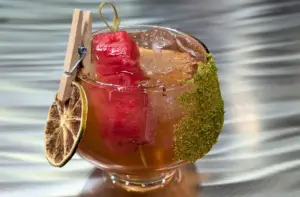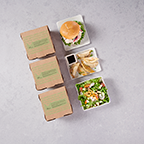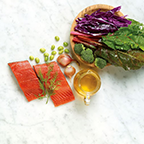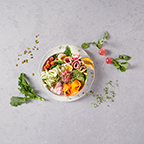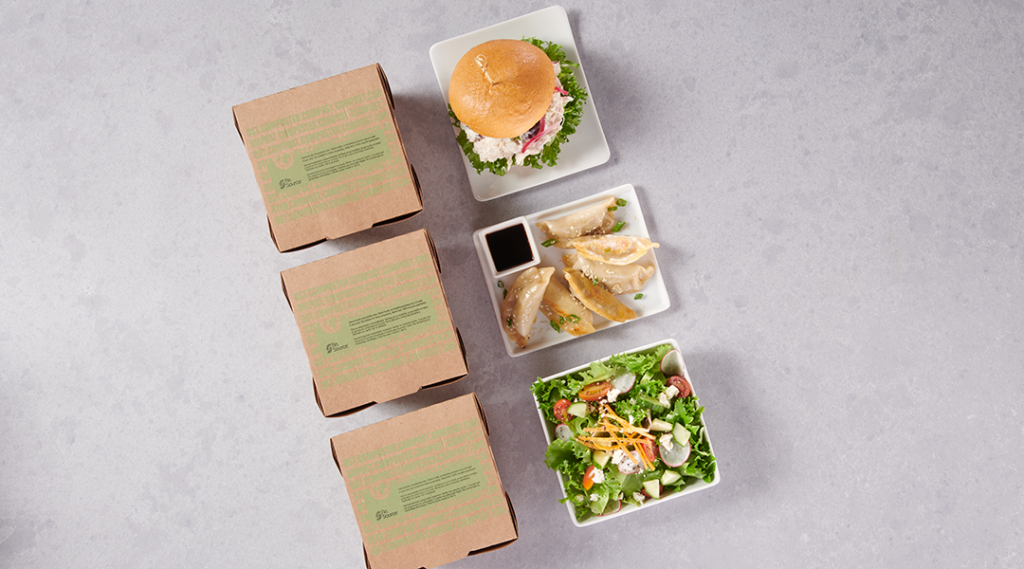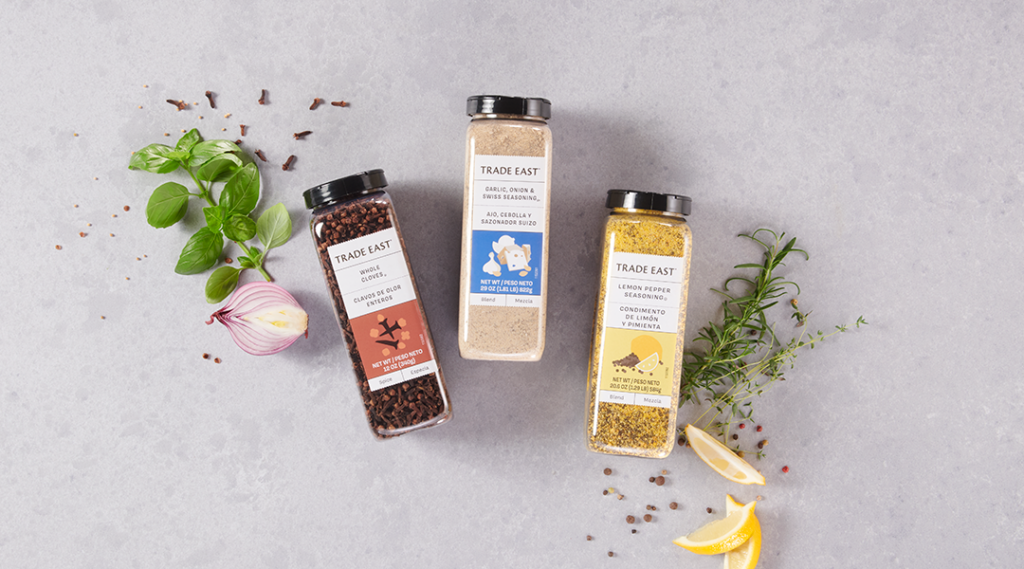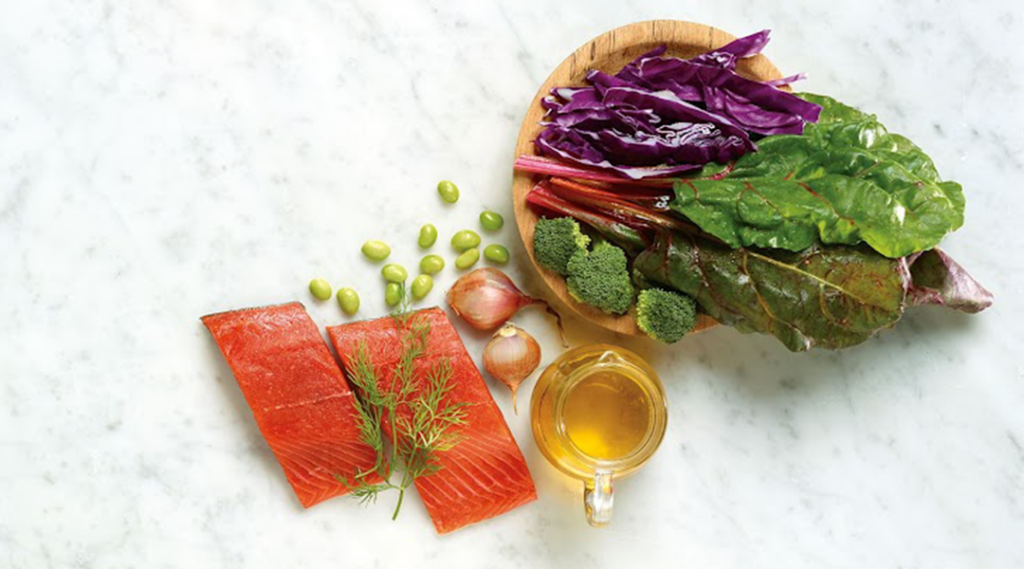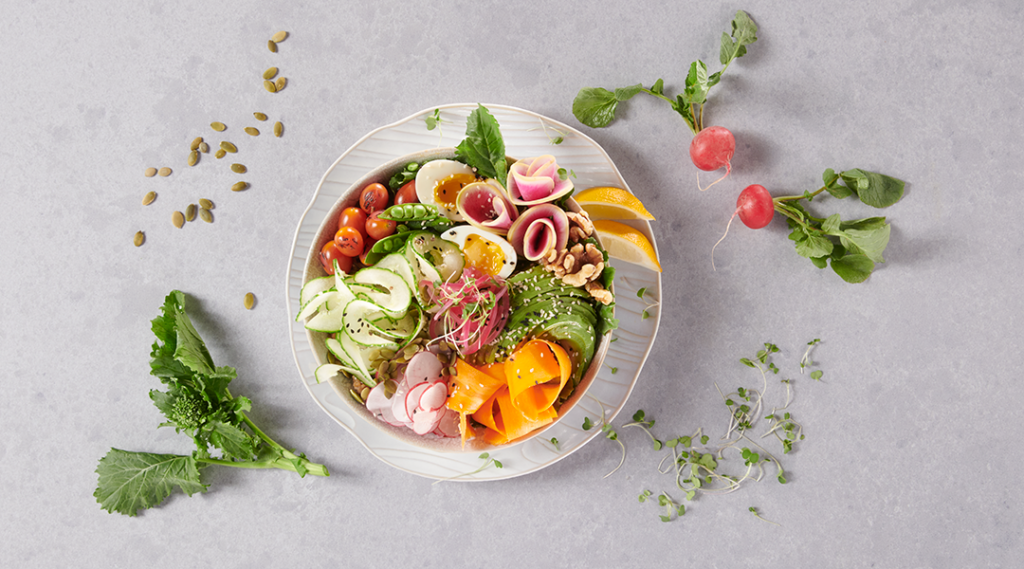A look at what makes up the MIND diet and how it may improve brain health and reduce the risk of Alzheimer’s disease.
New studies are looking at the corollary effects of diet on brain health and memory care, and the results are surprising. While we have long known that diet can play an integral role in controlling or preventing specific diseases, researchers at Rush University Medical Center in Chicago showed an astounding 53 percent reduction in the risk of developing Alzheimer’s disease by those following their diet plan. Appropriately called the MIND diet, it’s a combination of the Mediterranean diet and the DASH (Dietary Approaches to Stop Hypertension) diet. MIND stands for Mediterranean-DASH Intervention for Neurodegenerative Delay.
You are what you eat
While this emerging research will continue to be more fully explored, the MIND diet is somewhat loose: 10 “brain-healthy food groups”, five “unhealthy food groups,” and an emphasis on frequent servings of green vegetables: kale, spinach, broccoli, collards and the like. Because it focuses on general food patterns rather than specific nutrient recommendations, it’s fairly easy to follow. This flexible approach can be integral to success—the study found that effectiveness ranged from 35 percent to 53 percent depending on how rigorously participants adhered to the diet. While the MIND diet shows promising results, it’s important to note that further studies are needed to confirm the initial findings.
Breaking Down the MIND Diet
The emphasis is on making choices from these “brain-healthy” foods groups:
- Vegetables, especially leafy green vegetables
- Nuts
- Berries
- Beans
- Whole grains
- Fish and poultry
- Olive oil
- Wine
And avoiding or limiting these “unhealthy” food groups:
- Red meats
- Butter/margarine
- Cheese
- Pastries and sweets
- Fried or “fast” food
In the meantime, there are several commonalities that all studies agree are good for brain health: cruciferous vegetables, whole grains and foods high in antioxidants. Dark leafy greens, omega-3 rich fish, dried or fresh berries, walnuts and olive oil; these are collections of diet modifications that reflect the most compelling scientific evidence related to cognitive decline. Gordon Food Service Healthcare Segment Manager Dana Fillmore says, “The goal here is to get people thinking about their total meal patterns instead of thinking one good food versus another. It’s a combination of the foods/nutrients you eat that make the difference—not just that you ate enough of one type of food.”
Chef-driven solutions
The face of foodservice in senior living is changing. Baby boomers expect excellent food and there is a focus on fresh ingredients and regional cuisines. As Gordon Food Service Corporate Consulting Chef Gerry Ludwig, CEC, points out, “Chefs are becoming increasingly creative with vegetables, both in commercial and non-commercial kitchens. They are treating produce with the same level of creativity, passion, and flavour as protein-based dishes while using aggressive cooking techniques like pan searing, char-grilling and roasting to impart deep flavour.”
Any occasion to prepare creative, flavour-forward dishes while increasing whole grains and vegetables in the diet is a win-win. Global influence, from Asian inspired stir-fry to Mediterranean soups and stews, offer opportunity to incorporate diverse grains and vegetables into crave-worthy menus. Exotic acai berries blended into smoothies and bowls are a great breakfast or brunch option. Low-sodium pickling brines can be used for fruits and vegetables to add sharp, piquant flavour to sandwiches and salads.
Providing choices for those who crave traditional foods as well as those who desire more adventurous cuisine can be a complex challenge, but looking at diet as a whole gives ample opportunity to incorporate brain-boosting foods. Encourage healthy between-meal snacking with whole grains, nuts and berries; dried fruit and nut mixes; or multi-grain crackers with sugar-free berry jam. Also consider beverages as an opportunity to provide MIND diet-friendly foods. Look at serving shakes and smoothies made from vegetables and berries. This not only improves intake, but can help with hydration, a common concern for people living with memory-care issues.

